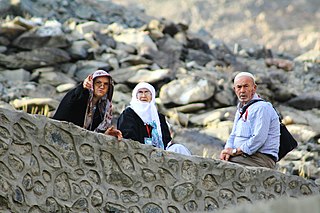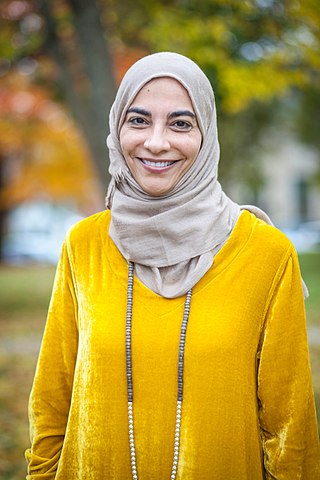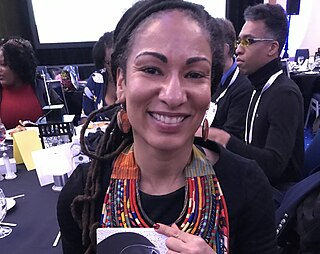Related Research Articles

King Saud University is a public university in Riyadh, Saudi Arabia. Established in 1957 by King Saud bin Abdulalziz to address the country's skilled worker shortage, it is the first university in Saudi Arabia. It was known as Riyadh University from 1964 until it was reverted to its inceptive name in 1982. It was converted into an independent non-profit academic institution in 2023.
Legal informatics is an area within information science.
Robot ethics, sometimes known as "roboethics", concerns ethical problems that occur with robots, such as whether robots pose a threat to humans in the long or short run, whether some uses of robots are problematic, and how robots should be designed such that they act 'ethically'. Alternatively, roboethics refers specifically to the ethics of human behavior towards robots, as robots become increasingly advanced. Robot ethics is a sub-field of ethics of technology, specifically information technology, and it has close links to legal as well as socio-economic concerns. Researchers from diverse areas are beginning to tackle ethical questions about creating robotic technology and implementing it in societies, in a way that will still ensure the safety of the human race.

The ethics of artificial intelligence is the branch of the ethics of technology specific to artificially intelligent systems. It is sometimes divided into a concern with the moral behavior of humans as they design, make, use and treat artificially intelligent systems, and a concern with the behavior of machines, in machine ethics.

Turks in Saudi Arabia also referred to as Turkish Arabians, Turkish Saudi Arabians, Saudi Arabian Turks, Arabian Turks or Saudi Turks refers to ethnic Turkish people living in Saudi Arabia. The majority of Arabian Turks descend from Ottoman settlers who arrived in the region during the Ottoman rule of Arabia. Most Ottoman Turkish descendants in Saudi Arabia trace their roots to Anatolia; however, some ethnic Turks also came from the Balkans, Cyprus, the Levant, North Africa and other regions which had significant Turkish communities. In addition to Ottoman settlement policies, Turkish pilgrims to Mecca and Medina often settled down in the area permanently.

Eric Joel Horvitz is an American computer scientist, and Technical Fellow at Microsoft, where he serves as the company's first Chief Scientific Officer. He was previously the director of Microsoft Research Labs, including research centers in Redmond, WA, Cambridge, MA, New York, NY, Montreal, Canada, Cambridge, UK, and Bangalore, India.
Hatoon Ajwad al-Fassi is a Saudi Arabian historian, author and women's rights activist. She is an associate professor of women's history at King Saud University in Saudi Arabia, where she has been employed since 1989 and at the International Affairs Department at Qatar University. At the university, al-Fassi carries out historical research. Al-Fassi claims from her research into the pre-Islamic Arabian kingdom of Nabataea that women in the kingdom had more independence than women in modern Saudi Arabia. Al-Fassi was active in women's right to vote campaigns for the 2005 and 2011 municipal elections and was active in a similar campaign for the 2015 municipal elections. She was arrested in late June 2018 as part of a crackdown on women's activists and was released in early May 2019.
Machine ethics is a part of the ethics of artificial intelligence concerned with adding or ensuring moral behaviors of man-made machines that use artificial intelligence, otherwise known as artificial intelligent agents. Machine ethics differs from other ethical fields related to engineering and technology. Machine ethics should not be confused with computer ethics, which focuses on human use of computers. It should also be distinguished from the philosophy of technology, which concerns itself with the grander social effects of technology.

Dr. Hayat Al Sindi is a Saudi Arabian medical scientist and one of the first female members of the Consultative Assembly of Saudi Arabia. She is famous for making major contributions to point-of-care medical testing and biotechnology. She was ranked by Arabian Business as the 19th most influential Arab in the world and the ninth most influential Arab woman. In 2018, she was listed as one of BBC's 100 Women.
Trevor Bench-Capon is a British computer scientist and an Honorary Visiting Professor of computer science at the University of Liverpool, where he taught from 1987 until his retirement in 2012. He is the author of work on computer science and ontology and is one of the editors in chief of the Artificial Intelligence and Law Journal.
Sara bint Faisal Al Saud is a member of the House of Saud, the Saudi royal family. She was among the first female members of the Consultative Assembly of Saudi Arabia who served in the post between January 2013 and December 2016.
Saudi Arabia is a theocracy organized according to the principles of Islam, which puts emphasis on the importance of knowledge and education. In Islamic belief, obtaining knowledge is the only way to gain true understanding of life, and as such, both men and women are encouraged to study. The way of practicing Wahhabi Islam has therefore led to gendered segregation in education in Saudi Arabia, which further perpetuates gender division in political, economic, and labor force environments.
Feminism in Saudi Arabia dates back to the ancient, pre-Roman Nabataean Kingdom in which women were independent legal persons. Twenty-first century feminist movements in Saudi Arabia include the women to drive movement and the anti male-guardianship campaign. Madawi al-Rasheed argued in 2019 that the Saudi feminist movement was "the most organised and articulate civil society" in Saudi Arabia.

Sandra Wachter is a professor and senior researcher in data ethics, artificial intelligence, robotics, algorithms and regulation at the Oxford Internet Institute. She is a former Fellow of The Alan Turing Institute.

Higher education in Saudi Arabia is the educational stage that follows the three years of secondary education. Higher education institutions are either governmental institutions or private institutions, and are mainly universities, colleges, and academies. There are three higher educational levels in Saudi Arabia: bachelor's degree, master's degree, and doctorate. Governmental universities in Saudi Arabia offer a free bachelor's degree education for Saudis and a monthly payment for each student during their studying period.
The regulation of artificial intelligence is the development of public sector policies and laws for promoting and regulating artificial intelligence (AI); it is therefore related to the broader regulation of algorithms. The regulatory and policy landscape for AI is an emerging issue in jurisdictions globally, including in the European Union and in supra-national bodies like the IEEE, OECD and others. Since 2016, a wave of AI ethics guidelines have been published in order to maintain social control over the technology. Regulation is considered necessary to both encourage AI and manage associated risks. In addition to regulation, AI-deploying organizations need to play a central role in creating and deploying trustworthy AI in line with the principles of trustworthy AI, and take accountability to mitigate the risks. Regulation of AI through mechanisms such as review boards can also be seen as social means to approach the AI control problem.
Fatmah Baothman is Saudi Arabian computer scientist who is the first woman in the Middle East with a Ph.D. in artificial intelligence. She was recently appointed the board president for the Artificial Intelligence Society. Baothman has worked over 25 years as, and is currently, an assistant professor at King Abdulaziz University Faculty of Computing & Information Technology Baothman established the women's Department which is the foundation of the Computer Science College at King Abdulaziz University, and became the first teaching assistant faculty member.

Black in AI, formally called the Black in AI Workshop, is a technology research organization and affinity group, founded by computer scientists Timnit Gebru and Rediet Abebe in 2017. It started as a conference workshop, later pivoting into an organization. Black in AI increases the presence and inclusion of Black people in the field of artificial intelligence (AI) by creating space for sharing ideas, fostering collaborations, mentorship, and advocacy.

Margaret Mitchell is a computer scientist who works on algorithmic bias and fairness in machine learning. She is most well known for her work on automatically removing undesired biases concerning demographic groups from machine learning models, as well as more transparent reporting of their intended use.
Katie Marie Atkinson is a professor of computer science and the Dean of the School of Electrical Engineering, Electronics and Computer Science at the University of Liverpool. She works on researching and building artificial intelligence tools to help judges and lawyers. Atkinson previously served as the President of the International Association for AI and Law.
References
- ↑ "Hall of Fame". 100 Brilliant Women in AI Ethics™. Retrieved 2021-04-02.
- ↑ Minevich, Mark (March 19, 2020). "The Women Defining The 21st Century AI Movement: Part 2 Of 2". Forbes. Retrieved 2021-04-02.
- 1 2 "Dr. Latifa Al-Abdulkarim – Saudi IoT" . Retrieved 2021-04-03.
- ↑ "Meet Saudi Arabia's Female Heroes Of Artificial Intelligence". About Her. 2020-04-05. Retrieved 2021-04-02.
- ↑ Al-Abdulkarim, Latifa; Atkinson, Katie; Bench-Capon, Trevor (2016-03-01). "A methodology for designing systems to reason with legal cases using Abstract Dialectical Frameworks". Artificial Intelligence and Law. 24 (1): 1–49. doi:10.1007/s10506-016-9178-1. ISSN 1572-8382. S2CID 4610542.
- ↑ "JURIX 2013 | The 26th International Conference on Legal Knowledge and Information Systems". jurix2013.cirsfid.unibo.it. Retrieved 2021-04-02.
- ↑ "These Engineers are Leading the Way in Artificial Intelligence Research Around the World". TryEngineering.org Powered by IEEE. 2020-05-18. Retrieved 2021-04-03.
- 1 2 "Latifa Mohammed Al-AbdulKarim". UNESCO. 2021-02-22. Retrieved 2021-04-03.
- ↑ "Latifa AlAbdulkarim". World Economic Forum. Retrieved 2021-04-03.
- ↑ "UNESCO convenes a global dialogue to break through bias in AI on International Women's Day". India Education,Education News India,Education News | India Education Diary. 2021-03-11. Retrieved 2021-04-03.